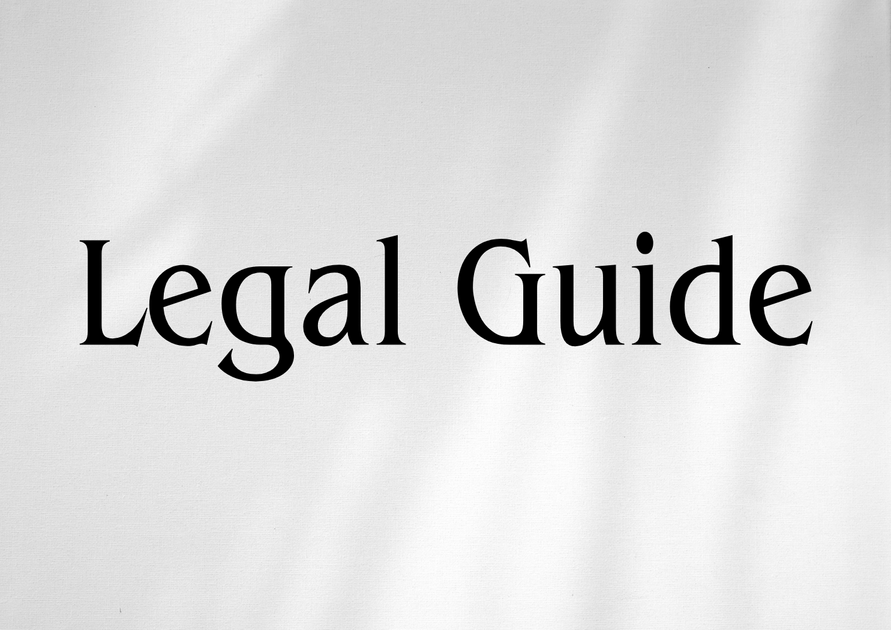Introduction
Sharia compliance has become a cornerstone of corporate governance and risk management in the Middle East, particularly given the integral role of Islamic finance and principles in the region’s regulatory landscape. For businesses operating in or partnering with the State of Qatar, understanding and adhering to Sharia compliance audit requirements is not merely a matter of best practice—it’s an essential legal and reputational imperative. As the regional business ecosystem grows ever more interconnected, executives, HR professionals, legal advisors, and compliance managers in the United Arab Emirates (UAE) are increasingly called upon to ensure their entities meet both local and cross-border compliance benchmarks. Recent legal updates across the GCC, including Qatar’s sustained focus on Sharia governance, have heightened the need for robust compliance strategies. This article offers an in-depth legal analysis of Sharia compliance audit requirements under Qatari law, placing them in the broader context of UAE business practices and compliance obligations. It aims to provide UAE businesses with actionable guidance, risk analysis, and strategic recommendations to navigate the complexities of Islamic regulatory frameworks in 2025 and beyond.
Table of Contents
- Legal Framework Governing Sharia Compliance Audits in Qatar
- Core Sharia Compliance Audit Requirements Under Qatari Law
- Recent Legal Developments Impacting UAE-Qatar Sharia Compliance
- Sharia Compliance Audit Process: Practical Overview
- Comparative Analysis: Sharia Compliance in Qatar vs Updated UAE Laws
- Case Studies and Hypothetical Scenarios
- Risks of Non-Compliance and Enforcement Mechanisms
- Strategic Guidance for UAE Businesses
- Conclusion and Forward Outlook
Legal Framework Governing Sharia Compliance Audits in Qatar
Core Statutes and Regulatory Bodies
Sharia compliance in Qatar is rooted in national legislation and binding regulations issued by the Qatar Central Bank (QCB), as well as in supervisory pronouncements from the Qatar Financial Centre Regulatory Authority (QFCRA) and the Qatar Financial Markets Authority (QFMA). Key sources include:
- QCB Law No. 13 of 2012 (“Qatar Central Bank and Regulation of Financial Institutions Law”), as amended
- QCB Instructions to Islamic Financial Institutions (regularly updated; see latest 2023 version available via the QCB portal)
- QFCRA and QFMA Guidance for listed and licensed Islamic entities
These instruments collectively mandate the establishment of independent Sharia supervisory boards, periodic Sharia compliance audits, and strict reporting of Islamic financial activities.
Mandatory Sharia Auditing under QCB Law
Article 79 of QCB Law No. 13 of 2012 explicitly requires all Islamic banks and financial institutions to establish a Shariah Supervisory Board, whose role is to oversee, monitor, and regularly audit organizational compliance with Sharia principles. The QCB Instructions delineate the practical elements of these audits, emphasizing:
- Periodic and event-based audits (annual at minimum)
- Comprehensive coverage of products, operations, transactions, marketing, and internal controls
- Formal reporting to both the Board of Directors and the QCB
Businesses operating in the cross-border context must heed these requirements, especially as many UAE-based entities now serve Qatari customers or partner with Qatari firms.
Core Sharia Compliance Audit Requirements Under Qatari Law
Sharia Supervisory Boards: Structure and Mandate
Every Islamic institution regulated by QCB must appoint an independent Sharia Supervisory Board, composed of recognized scholars with expertise in Islamic jurisprudence and finance. The key functions of this Board include:
- Policy Oversight: Approving all policies and procedures from a Sharia perspective.
- Product Vetting: Pre-clearance and ongoing monitoring of financial products and contracts.
- Audit Scheduling: Setting audit frequency, scope, and methodology.
For UAE companies with Qatari operations, the scholars’ credentials and independence are scrutinized under QCB’s fit-and-proper requirements.
Audit Scope and Methodologies
Sharia compliance audits encompass all relevant aspects of business operation, including:
- Transaction structuring and documentation
- Revenue sources and allocations (e.g., prohibition of interest-based income)
- Investment activities and asset pools
- Zakat calculation and charitable disbursements
- Marketing and communications (truth-in-advertising under Sharia)
Audits blend ex-ante (“before the fact”) assessments with ex-post (“after the fact”) reviews and must document all findings, deviations, and remediation paths.
Reporting and Remediation Obligations
- Formal audit findings must be compiled in an annual Sharia Report and submitted to both the Board of Directors and QCB.
- Material non-compliance is immediately reportable, triggering potential regulatory intervention.
Recent Legal Developments Impacting UAE-Qatar Sharia Compliance
Qatar’s Strengthening of Sharia Audit Standards (2022–2025)
Recent amendments to QCB Instructions (2023) signal a more rigorous approach to Sharia audits, including digital record-keeping, granular reporting, and enhanced auditor independence. The QCB’s move is aligned with international standards such as those promulgated by the Accounting and Auditing Organization for Islamic Financial Institutions (AAOIFI).
Implications for UAE Firms Post-2022
Several UAE-based financial institutions, especially those with significant Qatari investment or partnerships, must now align their practices with these tighter Qatari audit benchmarks. Cross-recognition of Sharia supervisory board decisions—an emerging topic across the GCC—requires vigilance and coordination among compliance teams.
Sharia Compliance Audit Process: Practical Overview
Stages of a Sharia Compliance Audit in Qatar
- Engagement Planning: Defining the audit scope (transactions, business units, contracts).
- Documentation Review: Collecting and analyzing all relevant documents under Sharia standards.
- Onsite/Remote Audit Execution: Interviews, transaction tracing, test sampling.
- Opinion Formation: Sharia board issues preliminary findings, recommendations, and required corrective measures.
- Final Report and Submission: Annual board report, signed by all Sharia board members, submitted to the QCB.
Throughout this process, independence is critical—external Sharia auditors or internal units must be free from business unit influence.
Key Documentation Requirements
- Duly executed contracts and fatwas (religious rulings)
- Transaction summaries and ledgers
- Zakat calculation records
- Board minutes and audit working papers
Comparative Analysis: Sharia Compliance in Qatar vs Updated UAE Laws
| Requirement | Qatar 2025 (QCB Law & Recent Circulars) | UAE 2025 (Federal Decree Law No. 6 of 2022 on Islamic Finance and the SCA rulebook) |
|---|---|---|
| Sharia Supervisory Board | Mandatory, with QCB-registered scholars | Mandatory, with independence required; SCA oversight for listed entities |
| Audit Frequency | Annual, plus event-based as triggered by material change | Annual, internal and (for some entities) external verification required |
| Reporting | Mandatory submission to QCB; Board of Directors | Submission to SCA or UAE Central Bank; Board of Directors |
| Disciplinary Action | QCB can impose fines, suspend operations, or require remediation | UAE Central Bank/SCA can levy fines, suspend business licenses |
| International Alignment | AAOIFI-compliant; periodic review of standards | AAOIFI and IFSB-compliant; updates per FLS and Cabinet Resolutions |
Visual Suggestion: A compliance checklist tree, mapping common requirements across the two jurisdictions, would enhance cross-border understanding.
Case Studies and Hypothetical Scenarios
Case Study 1: UAE Bank with Qatari Islamic Subsidiary
A UAE-based financial group acquires a minority stake in a Qatari Sharia-compliant bank. Following the acquisition, issues arise relating to the classification of certain investment products. The QCB’s Sharia audit identifies non-conforming Sukuk transactions structured under legacy UAE templates rather than QCB-mandated ones. The breach prompts the following mitigation plan:
- Immediate halt of the affected product line
- Board-level review and re-certification of product structures
- Mandatory Sharia training for all compliance staff across both entities
- Joint UAE-Qatar Sharia review and harmonization of audit standards
Case Study 2: Technology Firm Launching Digital Finance in Qatar
A DIFC-licensed fintech firm launches a digital Islamic finance platform in Qatar. During the initial Sharia audit, discrepancies in automated contract generation (whereby contracts appeared to lack proper Sharia structuring) are flagged. The platform must rapidly update its logic flows, introduce AI-driven Sharia compliance checks, and undergo post-remediation auditing before scaling operations.
Risks of Non-Compliance and Enforcement Mechanisms
Financial and Regulatory Risks
- Direct regulatory fines (ranging from QAR 50,000 up to QAR 5 million per infraction under QCB administrative circulars)
- Suspension or revocation of operating licenses
- Potential civil liability to investors and counterparties
Reputational and Business Risks
- Loss of market confidence and partner/investor withdrawal
- Negative media coverage impacting both UAE and Qatari operations
- Heightened regulatory scrutiny in future licensing/joint venture processes
| Consequence | Severity (Qatar) | Severity (UAE) |
|---|---|---|
| Regulatory Fine | High (up to QAR 5 million) | Moderate-High (up to AED 2 million/fine; business suspension) |
| License Revocation | Severe | Severe |
| Reputational Loss | High (especially with international stakeholders) | High (with regional market consequences) |
Visual Suggestion: A penalty comparison chart illustrating fine levels, timelines for remediation, and reporting triggers will reinforce awareness among compliance professionals.
Strategic Guidance for UAE Businesses
Key Steps for Compliance for UAE Entities Dealing with Qatar
- Understand Jurisdiction-Specific Standards: Map local UAE requirements against QCB regulations to ensure no cross-border gaps exist.
- Strengthen Sharia Expertise: Appoint or engage recognized scholars/advisors who meet QCB’s requirements, not just local standards.
- Establish Robust Internal Controls: Update compliance policies to require pre-emptive legal and Sharia reviews for all new products, contracts, and technologies deployed in Qatar.
- Maintain Comprehensive Audit Trails: Utilize digital audit solutions and maintain extensive records for review by both UAE and Qatari regulators.
- Conduct Regular Training and Awareness Initiatives: Host workshops and cross-border compliance sessions, ensuring all relevant personnel remain updated on evolving standards.
- Engage Early and Often with Regulators: Seek informal guidance or clarification from QCB and UAE regulators proactively—especially for novel products or structures.
For multinational organizations, an integrated compliance calendar, mapping both UAE and Qatari regulatory deadlines, should be maintained.
Compliance Checklist
| Checklist Item | Responsibility | Deadline/Frequency |
|---|---|---|
| Establish Sharia Supervisory Board | Legal/Board | As soon as entity is licensed |
| Annual Sharia Audit | Audit/Compliance | Every financial year |
| Submit Audit Reports to QCB/SCA | Compliance Officer | Annually/Upon request |
| Staff Sharia Training | HR/Compliance | Annually; upon onboarding |
| Update Internal Audit Policy | Board/Legal/Compliance | Upon regulatory change; annual review |
Conclusion and Forward Outlook
Sharia compliance audit requirements under Qatari law are intensifying, and regional regulatory convergence is accelerating. As QCB and other GCC authorities move toward greater oversight, UAE businesses must treat cross-border Sharia compliance not as a siloed function, but as a board-level risk with substantial business ramifications. By understanding the evolving regulatory framework, implementing robust controls, and maintaining clear documentation, organizations can mitigate both legal and reputational risks. Looking forward, we recommend UAE businesses:
- Monitor ongoing legal updates from the QCB and UAE regulatory authorities (Ministry of Justice, Ministry of Human Resources and Emiratisation, SCA, UAE Central Bank).
- Engage with recognized Sharia auditing firms for independent assurance.
- Foster ongoing dialogue with regulatory authorities to anticipate—and shape—future standards.
Early and proactive compliance will position UAE-based companies to both avoid penalties and seize the expanding Islamic finance opportunities in the Gulf.




